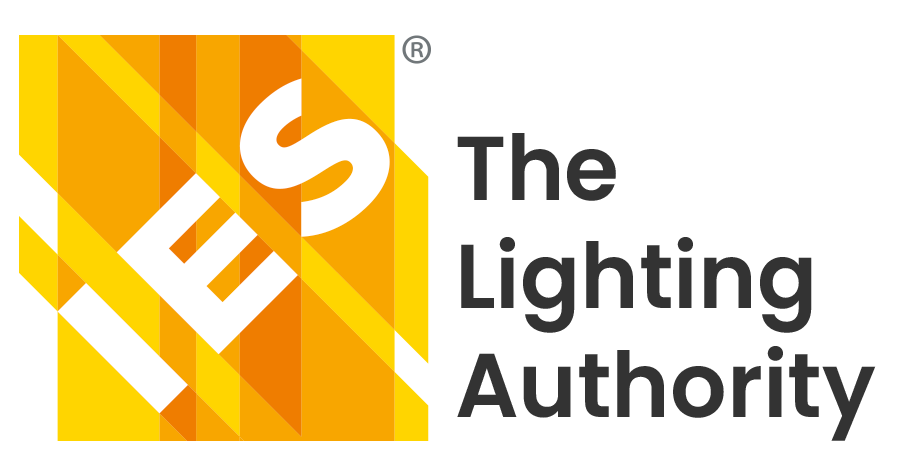Seven 2022 honorees weigh inBy Paul Pompeo
Photo by:
I was very humbled to be one of the 10 honorees receiving EdisonReport’s 2022 Lifetime Achievement Award at this year’s gala during LightFair in June. The judges’ criteria are based on a nominee’s lifetime of work in our industry, and the honorees are usually professionals who have given 30-plus years of their life to lighting.
I reached out to this year’s honorees about sharing their wisdom, knowledge and experience with other lighting professionals by answering two questions. Responses from Randy Burkett, Denise Fong, Patty Glasow, Dawn Hollingsworth, Kevin Houser, Mark Lien and Charles Stone follow here.
To what do you attribute your success over the years?
Stone: In a word? Persistence. I knew that lighting design was what I wanted to do, and I kept a laser focus on learning as much I could, saying “yes” to every opportunity, and I worked hard. In those olden times we worked really late on Wednesday and Thursday because we had to get the drawings to the printer by noon on Friday. And the week started on Sunday afternoon. If you start on Sunday, the guy who starts on Monday is already behind.
Fong: I had the great good fortune to work with wonderful people. I knew nothing about lighting initially, but I moved to NYC on a wing and a prayer in the hopes of learning more about lighting—never thinking it would actually become a career for me! Working in lighting design allowed me to explore some lighting topics in more detail than is often possible working in the consulting world and to develop skills in public speaking that I might not otherwise have. I then landed back in the consulting world, where I had another group of mentors that who taught me so much.
Houser: I believe it counterproductive and unhelpful to benchmark [yourself] against the performance of others. Life is a marathon, not a sprint, and in this race of life you are only competing against yourself—trying to evolve and mature into the best version of yourself. Instead of comparing myself against others, I prefer to compare myself to my younger self.
Expect a lot of yourself. Have high personal standards and hold yourself accountable. But don’t beat yourself up when you fall short of your own expectations. Even small personal changes add up over time. As much as it is possible, try to spend time with people that you admire, respect and/or love. Mutual growth is even more satisfying than personal growth.
Glasow: A combination of directed determination, supportive people, luck, hard work and ultimately being in the fortunate position to surround myself with really good people. In school, then in my early career, I had people that mentored me and helped me learn the profession. I also worked hard, and still do!
I learned that it’s about relationships. And having a respectful, collaborative, enjoyable relationship with your clients is as important to success as the good design, which is born from those relationships. Similarly, having good, trusting relationships with my staff and partners, creates the environment for creative ideas and design. You need the design and technical training, practice and hands-on experience, but ultimately, the success of your practice will be based on the success of your relationships.
Lien: Light still fascinates me! It is infinitely interesting. That has kept me engaged and passionate. No one learns in their comfort zone—when the workday feels like the day before, that has been my cue to look for a new challenge. Networking in the lighting community provides unexpected opportunities. As an introvert, I push myself to engage with others and those relationships have been valuable.
Burkett: I love what I do! Every project is different. I believe that good lighting enriches the built environment. When I can see lighting from my client’s perspective, I can best visualize the true needs of a project. When I’m truly understanding what role lighting must play then I am doing worthwhile work.
Hollingsworth: I had great role models. First, my parents were great motivators and encouraged learning—I was interested in many things as a kid. Volunteering with the IES and IALD was a great way for me to learn and grow as a professional. It allowed me to meet many great people who had common interests and I learned from each of them. Success is like compounding interest—if you enjoy helping others to be successful, your own success will grow over time.
What advice would you give to someone who is just starting out in lighting?
Hollingsworth: Each person must decide their own priorities for their life. Your priorities may evolve as you move through your professional and personal journeys. The best advice I can offer is to understand yourself. Knowing who you are, what you want, and what motivates you is a great place to start to write your own story. Knowing what you are not good at and accepting that is as equally important. True success isn’t who makes the most money or has the biggest office—success is achieving the life you want. You can only do that by knowing who you are.
Lien: If you’re not skilled at your ability to communicate effectively, then your ideas and suggestions will be less likely to be implemented. A degree in psychology is prohibitive for most of us, but understanding human behavior is essential when effectively dealing with humans. Over 80% of an engineer’s salary is dependent on their ability to communicate rather than their engineering skills.
To assume that you cannot learn from others—that you are good enough already—is an arrogant and detrimental mindset. Assume that you will need continuous education.
Glasow: Be curious! Be open to different experiences. In lighting and architecture, of course, but also in the arts, literature, travel, history, science, psychology. I’ve found that when I learn something new, it is almost immediately applicable in some way to my professional life. We work on many different types of projects, with a wide diversity of people, and we need to understand both the project and the people. There are no shortcuts to knowledge, so get busy. Being expansive makes you a better designer.
Stone: I consider myself successful because I get up in the morning excited and happy about my work. That’s relatively easy when you’re in your 20s and 30s, but perhaps less so as the years go by. If you’re working in lighting in your 20s but don’t really like it, please get out of lighting and do something you like! On the other hand, if you love what you do in lighting, year after year, well, I think you’re already successful.
If you’re thinking about a career in lighting, identify the top talent and best companies and go work for one of them. Do
your homework. And don’t go looking for a job—you’re looking for a career.
Fong: Seek out mentors whether they are in your company or a related business. It doesn’t have to be a formal relationship. None of mine were, but I did—and do—count each of my mentors as friends. Always be curious. Never stop learning. Observe light wherever you go, in nature and in the built environment. Travel as much as you can. Be kind and generous—you’ll never regret being nice to others. The earth and its resources are finite; do your part to take care of it in both your personal and professional life.
Houser: Be guided by your aspirations—your dreams, your principles. Prioritize quality over quantity. I’ve never wanted to be affiliated with something I’m not proud of. Life is too short to work on things you do not believe in.
Burkett: Do not limit your lifelong education to lighting only. Be constantly learning all you can about the disciplines with [which] you work—architecture, landscape architecture, interior design, electrical engineering and others. The more you can speak their language and to their needs, the deeper your understanding will be about how to work collectively with them in creating better lighting designs.
Read an expanded version of this interview at www.pompeo.com.


